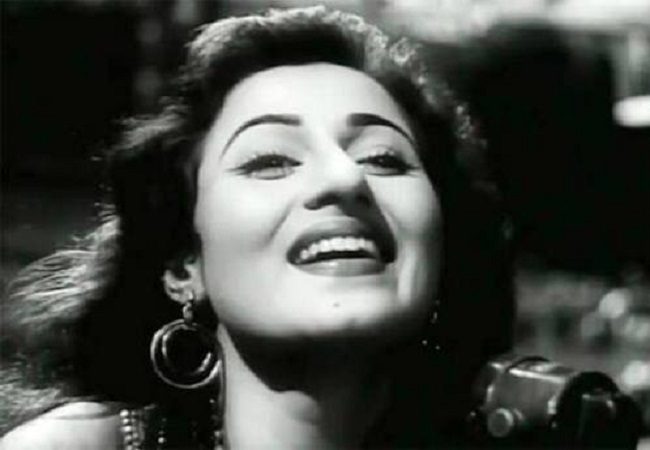New Delhi: Proclaimed as ‘The Marilyn Monroe of Bollywood’, late actor Madhubala would have turned 88 on Sunday if she were alive today.
The legendary actor, who graced the Indian cinema with her art and beauty, Madhubala is sorely missed by millions of her fans. The classic actress of the bygone era was featured in some of the best timeless classics such as ‘Amar’, ‘Chalti Ka Naam Gaadi’, ‘Mughal-e-Azam’, ‘Barsaat Ki Raat’.
Madhubala was a gifted actor and was known for her beauty, personality, and sensitive portrayals of women in films.
Born in Delhi on this day in 1933, Mumtaz Jehan Begum Dehlavi was raised in a town located near the Bombay Talkies film studio. She appeared in her first film at the age of 9, billed as Baby Mumtaz.
Her first major role, at the age of 16, was as the leading lady in the 1949 film ‘Mahal’ opposite Ashok Kumar. She died at the mere age of 36 leaving behind her dazzling career.
Here is a look back on the legendary actor’s iconic dialogues that have still remained intact in the memories of people.
1. Kaaton ko murjhane ka khauf nahin hota:- ‘Thorns are not scared about withering’. This dialogue is from the 1960 blockbuster hit ‘ Mughal-E-Azam’ which was directed directed by K. Asif and produced by Shapoorji Pallonji. A special team of Urdu writers were ropped in to to develop the screenplay and dialogue: Aman (Zeenat Aman’s father, also known as Amanullah Khan), Wajahat Mirza, Kamaal Amrohi, and Ehsan Rizvi. The flick also won Filmfare Award for Best Dialogue in 1961.
2. Phool toh murjha jaate hain … lekin kaante daaman thaam lete hain:- The ‘Flowers do wither … but thorns stay over’ dialogue is also from from the 1960 blockbuster hit ‘ Mughal-E-Azam’. The Indian epic historical drama film revolves around Salim, an emperor’s son, falls in love with a beautiful courtesan. Even though he is determined to be with her, his father decides to break them apart.
3. Zindagi aur waqt ka dariya aaisa hai … aadmi ek baar usse laang jaye toh phir kabhi vapas nahi aa sakta:- The dialogue ‘The sea of life and time is such that … once a person crosses it then he can never come back’ is from 1952 Bollywood drama Sangdil which she played lead opposite to Bollywood legend Dilip Kumar.
4. Meri aankhon se mere khwab na cheeniye Shehzaade … main marr jaongi:- The dialogue ‘Your Highness please don’t take my dreams from my eyes … I will die’, is also from her iconic film ‘Mughal-E-Azam’. This flick bagged accolades in all major categories.
Raised in the slums of Bombay, she supported her family as a child star and soon became a leading lady known for her elegance on-screen and considerable acting abilities.
In 1947, she landed the lead role in Neel Kamal at the age of 14, taking the name Madhubala. As the family’s main breadwinner, she worked tirelessly to support her parents and four sisters.
She famously fell in love with actor Dilip Kumar, her co-star in cult classic Mughal-E-Azam (1960). Her character as Anarkali and the chemistry with Kumar, who essayed the role of Salim, is still remembered and etched in millions of hearts across the country.
“While her breathtaking appearance earned comparisons to Venus, Madhubala was a gifted actor with an understated style well suited for comedies, dramas, and romantic roles alike,” Google said in its blog.
Madhubala appeared in nine films during 1949, including a spellbinding breakout performance in the box office hit Mahal. Appearing in over 70 films over the course of a tragically brief career, Madhubala — who would have turned 86 today — was called “The Biggest Star in the World” in 1952 by Theatre Arts magazine.
Madhubala’s fledgling career and life were cut short when she breathed her last on February 23, 1969, due to prolonged illness. In 2008, the legendary actress appeared on a commemorative postage stamp in India, where she is remembered by many as one of the greatest to ever grace the silver screen.

